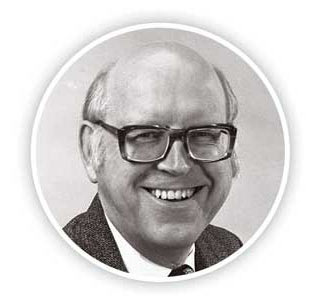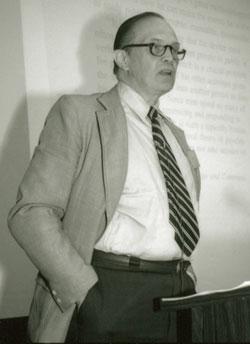
Cognitive science is the interdisciplinary, scientific study of the mind and its processes. It examines the nature, the tasks, and the functions of cognition. Mental faculties of concern to cognitive scientists include perception, memory, attention, reasoning, language, and emotion; to understand these faculties, cognitive scientists borrow from fields such as psychology, artificial intelligence, philosophy, neuroscience, linguistics and anthropology. The typical analysis of cognitive science spans many levels of organization, from learning and decision-making to logic and planning; from neural circuitry to modular brain organization. One of the fundamental concepts of cognitive science is that "thinking can best be understood in terms of representational structures in the mind and computational procedures that operate on those structures."
Cognitive linguistics is an interdisciplinary branch of linguistics, combining knowledge and research from cognitive science, cognitive psychology, neuropsychology and linguistics. Models and theoretical accounts of cognitive linguistics are considered as psychologically real, and research in cognitive linguistics aims to help understand cognition in general and is seen as a road into the human mind.
Cognitive science is the scientific study either of mind or of intelligence . Practically every formal introduction to cognitive science stresses that it is a highly interdisciplinary research area in which psychology, neuroscience, linguistics, philosophy, computer science, anthropology, and biology are its principal specialized or applied branches. Therefore, we may distinguish cognitive studies of either human or animal brains, the mind and the brain.
Artificial consciousness, also known as machine consciousness, synthetic consciousness, or digital consciousness, is the consciousness hypothesized to be possible in artificial intelligence. It is also the corresponding field of study, which draws insights from philosophy of mind, philosophy of artificial intelligence, cognitive science and neuroscience.

Allen Newell was an American researcher in computer science and cognitive psychology at the RAND Corporation and at Carnegie Mellon University's School of Computer Science, Tepper School of Business, and Department of Psychology. He contributed to the Information Processing Language (1956) and two of the earliest AI programs, the Logic Theorist (1956) and the General Problem Solver (1957). He was awarded the ACM's A.M. Turing Award along with Herbert A. Simon in 1975 for their contributions to artificial intelligence and the psychology of human cognition.

George Armitage Miller was an American psychologist who was one of the founders of cognitive psychology, and more broadly, of cognitive science. He also contributed to the birth of psycholinguistics. Miller wrote several books and directed the development of WordNet, an online word-linkage database usable by computer programs. He authored the paper, "The Magical Number Seven, Plus or Minus Two," in which he observed that many different experimental findings considered together reveal the presence of an average limit of seven for human short-term memory capacity. This paper is frequently cited by psychologists and in the wider culture. Miller won numerous awards, including the National Medal of Science.
New mysterianism, or commonly just mysterianism, is a philosophical position proposing that the hard problem of consciousness cannot be resolved by humans. The unresolvable problem is how to explain the existence of qualia. In terms of the various schools of philosophy of mind, mysterianism is a form of nonreductive physicalism. Some "mysterians" state their case uncompromisingly ; others take a "pseudo-mysterian" stance, being of the belief that consciousness is not within the grasp of present human understanding, but may be comprehensible to future advances of science and technology.

The homunculus argument is an informal fallacy whereby a concept is explained in terms of the concept itself, recursively, without first defining or explaining the original concept. This fallacy arises most commonly in the theory of vision. One may explain human vision by noting that light from the outside world forms an image on the retinas in the eyes and something in the brain looks at these images as if they are images on a movie screen. The question arises as to the nature of this internal viewer. The assumption here is that there is a "little man" or "homunculus" inside the brain "looking at" the movie.

Ned Joel Block is an American philosopher working in philosophy of mind who has made important contributions to the understanding of consciousness and the philosophy of cognitive science. He has been professor of philosophy and psychology at New York University since 1996.

Keith E. Stanovich is an American research scientist and psychologist. He is an Emeritus Professor of Applied Psychology and Human Development at the University of Toronto and former Canada Research Chair of Applied Cognitive Science. His primary research areas are the psychology of reasoning and the psychology of reading. Stanovich has been acknowledged by his peers as one of the most influential cognitive psychologists in the world. His 2009 book What Intelligence Tests Miss won the 2010 Grawemeyer Award in Education. In 2012, Stanovich received the E. L. Thorndike Career Achievement Award from the American Psychological Association (APA). He is a fellow at the APA, the American Psychological Society, and the Committee for Skeptical Inquiry.
Dedre Dariel Gentner is an American cognitive and developmental psychologist. She is the Alice Gabriel Twight Professor of Psychology at Northwestern University, and a leading researcher in the study of analogical reasoning.
The cognitive revolution was an intellectual movement that began in the 1950s as an interdisciplinary study of the mind and its processes, from which emerged a new field known as cognitive science. The preexisting relevant fields were psychology, linguistics, computer science, anthropology, neuroscience, and philosophy. The approaches used were developed within the then-nascent fields of artificial intelligence, computer science, and neuroscience. In the 1960s, the Harvard Center for Cognitive Studies and the Center for Human Information Processing at the University of California, San Diego were influential in developing the academic study of cognitive science. By the early 1970s, the cognitive movement had surpassed behaviorism as a psychological paradigm. Furthermore, by the early 1980s the cognitive approach had become the dominant line of research inquiry across most branches in the field of psychology.

Aaron Sloman is a philosopher and researcher on artificial intelligence and cognitive science. He held the Chair in Artificial Intelligence and Cognitive Science at the School of Computer Science at the University of Birmingham, and before that a chair with the same title at the University of Sussex. Since retiring he is Honorary Professor of Artificial Intelligence and Cognitive Science at Birmingham. He has published widely on philosophy of mathematics, epistemology, cognitive science, and artificial intelligence; he also collaborated widely, e.g. with biologist Jackie Chappell on the evolution of intelligence.

Dame Uta Frith is a German-British developmental psychologist and emeritus professor in cognitive development at the Institute of Cognitive Neuroscience at University College London (UCL). She pioneered much of the current research into autism and dyslexia. Her book Autism: Explaining the Enigma introduced the cognitive neuroscience of autism. She is credited with creating the Sally–Anne test along with fellow scientists Alan Leslie and Simon Baron-Cohen. Among students she has mentored are Tony Attwood, Maggie Snowling, Simon Baron-Cohen and Francesca Happé.
Zenon Walter Pylyshyn was a Canadian cognitive scientist and philosopher. He was a Canada Council Senior Fellow from 1963 to 1964.

Justin Fritz Leiber was an American philosopher and science fiction writer. He was the son of fantasy, horror and science fiction author Fritz Leiber and the grandson of stage and film actor Fritz Leiber, Sr. Previously a professor of philosophy at the University of Houston, Leiber was most recently a professor emeritus of philosophy at Florida State University. He was a visiting fellow at Linacre College, Oxford during the Trinity term on numerous occasions.
The term physics envy is used to criticize modern writing and research of academics working in areas such as "softer sciences", philosophy, liberal arts, business administration education, humanities, and social sciences. The term argues that writing and working practices in these disciplines have overused confusing jargon and complicated mathematics to seem more 'rigorous' as in heavily mathematics-based natural science subjects like physics.
Cognitive biology is an emerging science that regards natural cognition as a biological function. It is based on the theoretical assumption that every organism—whether a single cell or multicellular—is continually engaged in systematic acts of cognition coupled with intentional behaviors, i.e., a sensory-motor coupling. That is to say, if an organism can sense stimuli in its environment and respond accordingly, it is cognitive. Any explanation of how natural cognition may manifest in an organism is constrained by the biological conditions in which its genes survive from one generation to the next. And since by Darwinian theory the species of every organism is evolving from a common root, three further elements of cognitive biology are required: (i) the study of cognition in one species of organism is useful, through contrast and comparison, to the study of another species' cognitive abilities; (ii) it is useful to proceed from organisms with simpler to those with more complex cognitive systems, and (iii) the greater the number and variety of species studied in this regard, the more we understand the nature of cognition.









